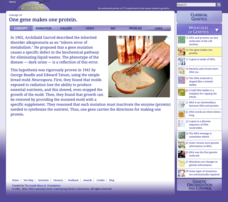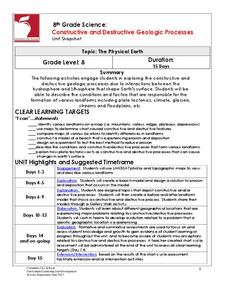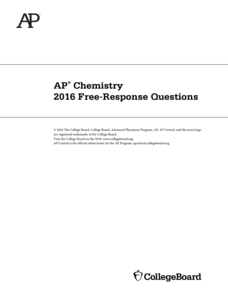Curated OER
Compare and Contrast
Fourth graders read two books For this compare and contrast lesson, 4th graders read a science fiction or fantasy story and compare it to the story, "Help! I'm a Prisoner in the Library." Students also have the option to listen to...
Curated OER
Mystery Paint
Students use the scientific method to determine the properties of various kinds of paints, use collected data to identify paint samples that are not properly labeled and use proper science safety techniques while working with chemical...
Perkins School for the Blind
The Mystery Box - Making Observations and Collecting Data
Making observations and collecting qualitative and quantitative data is a vital skill all scientists need to practice. Help your scientists with partial and no sight learn how to use their other senses to make observations for...
Concord Consortium
Sticking a Balloon to a Wall
This is one sticky situation! Science sleuths uncover the mystery behind a balloon that appears to be stuck to a wall using an interactive. Learners observe a neutrally charged wall before they manipulate the charge on a balloon. Atom...
Cold Spring Harbor Laboratory
One Gene Makes One Protein
Very few universities still offer a master's degree in the ecology of grasses, but that was the degree that led George Wells Beadle to an interest in genetics and later a Nobel Prize. Scholars learn about the discoveries of Dr. Beadle...
Curated OER
Journey North 1999
This is not a lesson plan, but an outstanding resource to provide material for your lessons on seasonal changes and animal migration. Links connect you to live web cams and up-to-date information on Monarch Butterflies, hummingbirds,...
Curated OER
Light
Light is such a fascinating subject. This instructional activity does a great job of illuminating the mysteries of light for your young scientists. A series of demonstrations which are explained in the plan should help your charges to...
Pingry School
Determination of Molar Mass by Boiling Point Elevation
Francis Raoult discovered the change in boiling points of solutions varies by the number of particles in the solution. Scholars apply the concept to determine the molality of a solution based on the change in boiling point. They use an...
Curated OER
AP: Chapter 8: Membranes
AP biology buffs dismantle the mystery of the cell membrane by explaining its structure and function. They decipher membrane fluidity, define the roles of membrane proteins, and analyze a diagram of a selectively permeable membrane...
Curated OER
Evaporation Inquiry
The evaporation of water and what happens to it as it travels through the water cycle are the focuses of this activity. The evaporation of water seems like a "magical" process to people of all ages. This activity takes away the mystery,...
Curated OER
Human Body Riddle
The human body can be a mystery, or at least a riddle. Fifth graders pair up and use Photostory to create a riddle relating to a human body part and how it functions in the body system. They will compose a riddle, use a story board, take...
Southwestern Medical Center
Field Epidemiology: Investigation of an Unknown Disease
More than 90 percent of the people in a building have come down with an illness, and it is your job to investigate. Teachers give scientists the data needed to decide what is important and how they can solve the mystery....
American Chemical Society
Moving Molecules in a Solid
Who likes magic shows? In the fourth of five lessons, pupils view a scientific magic trick. The ball fits through the ring easily, but then moments later, it won't pass through anymore. What changed? Can we reverse the change? Scholars...
Curated OER
Macromolecule Lab
During a macromolecule lab, young chemists perform multiple tests, including iodine starch tests, to determine if eight mystery foods contain lipids, sugars, or starches.
McGraw Hill
Stellar Spectroscopy Interactive
Stars seem to be a far away mystery... but it turns out we know much more about stars than one would think! An engaging lesson shows learners how to read a light spectrum to determine the temperature and chemical makeup of a star....
Columbus City Schools
Constructive and Destructive Geologic Processes
Show the class the world as they've never seen it before—from way above! Learners try to unravel the mysteries presented by rich satellite imagery, learn to interpret topographic maps, and study erosion by constructing their very...
Chemistry Collective
Virtual Lab: DNA Binding Problem
Why do the bases in DNA pair up the way they do? Unravel the mystery of the double helix in a virtual lab. Young scientists follow in the footsteps of Watson and Crick to determine the free energy associated with DNA base pair binding....
Chemistry Collective
Virtual Lab: Temperature and the Solubility of Salts
Can your scholars solve the mystery of why salts dissolve? A virtual workbench allows them to experiment with temperature and solubility with no solution prep and no post-lab clean up! Users determine the solubility of a variety of...
Howard Hughes Medical Institute
DNA Profiling Activity
Everyone loves a good mystery ... can your class actually solve one? Partnered pupils take on the role of forensic investigators during a three-part activity focusing on DNA evidence processing. Learners discover the methods used to...
Nuffield Foundation
Observing Water Moving Through Plants
We know plants assist in the water cycle, but how do plants get water from the ground into the air? Through a series of demonstrations or labs, scholars observe the movement of water through plants. They microscopically view the cells...
Next Generation Science Storylines
How Can We Sense so Many Different Sounds from a Distance?
Dive into the mystery of sound waves! Scholars brainstorm questions about how sound travels and why different items make different sounds. They then conduct experiments to answer their questions.
College Board
2016 AP® Chemistry Free-Response Questions
The College Board published the mean score on the 2016 AP Chemistry exam as a 2.69, but a minimum of a three is required to earn college credit. Help pupils study for the upcoming exam with actual test questions, sample answers, and...
Cold Spring Harbor Laboratory
DNA Responds to Signals from Outside the Cell
How do cells know when to replicate, transcribe, and stop? James E. Darnell, Jr. shifted from studying medicine to biochemistry and decided to address this mystery. Learn about his research, discoveries, and the impact on future medical...
Curated OER
Mystery Spill
Students investigate the cause of birds dying in Monterey Bay. For this scientific research lesson, students use various resources, scientific investigations, and vector analysis to solve an environmental mystery.
Other popular searches
- Science Related Mystery
- Science Murder Mystery
- Science Mystery
- Science Lessons Mystery Bags
- Mystery Science Lesson

























